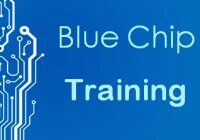CompTIA A+ 1101-1102 Course Overview
The CompTIA A+ Core 1 and Core 2 certification courses are designed to help professionals fully comprehend the hardware and software technologies they will be using to support a variety of IT infrastructures. This CompTIA A+ certification is extensively used by businesses as a benchmark and confirmation of a candidate’s abilities.
One industry-recognized certification that includes performance testing is CompTIA A+. This CompTIA certification demonstrates a professional’s ability to handle crucial IT support jobs. Obtaining the CompTIA A+ Core 1 and Core 2 certification helps individuals gain entry-level employment in IT by ensuring they understand the fundamentals of hardware, networks, and computer systems. The industry benchmark for starting IT professions in the modern digital age is CompTIA A+. Check out the dates below to enrol in this CompTIA A+ Core 1 and Core 2 course today.
- Given a scenario, install and configure laptop hardware and components
- Compare and contrast the display components of mobile devices.
- Given a scenario, set up and configure accessories and ports of mobile devices
- Given a scenario, configure basic mobile-device network connectivity and application support.
- Compare and contrast Transmission Control Protocol (TCP) and User Datagram Protocol (UDP) ports, protocols, and their purposes
- Compare and contrast common networking hardware
- Compare and contrast protocols for wireless networking.
- Compare and contrast common network configuration concepts.
- Given a scenario, use networking tools.
- Explain basic cable types and their connectors, features, and purposes.
- Given a scenario, install the appropriate RAM
- Given a scenario, install or replace the appropriate power supply
- Given a scenario, install and replace printer consumables.
Module 4: Virtualization and Cloud Computing
- Summarize cloud-computing concepts
- Summarize aspects of client-side virtualization
Module 5: Hardware and Network Troubleshooting
- Given a scenario, apply the best practice methodology to resolve problems
- Given a scenario, troubleshoot problems related to motherboards, RAM, CPU, and power
- Given a scenario, troubleshoot common issues with mobile devices.
- Given a scenario, troubleshoot and resolve printer issues.
- Given a scenario, troubleshoot problems with wired and wireless networks.

